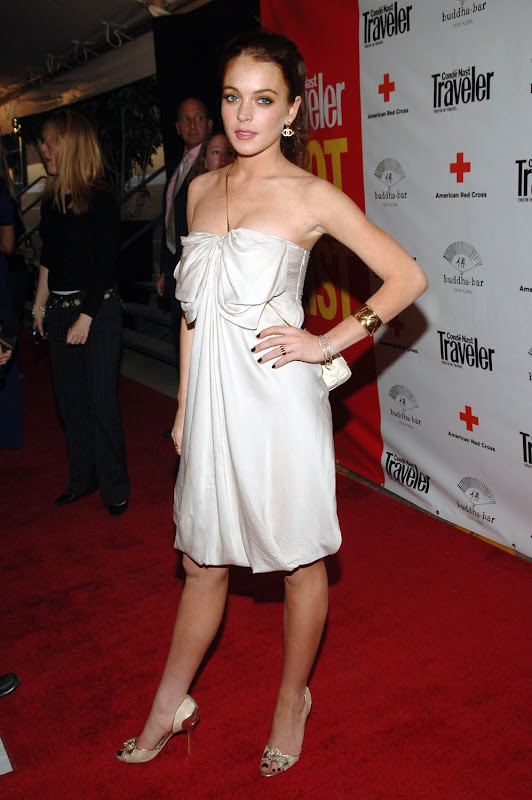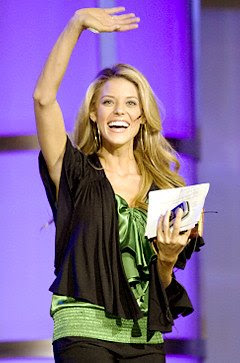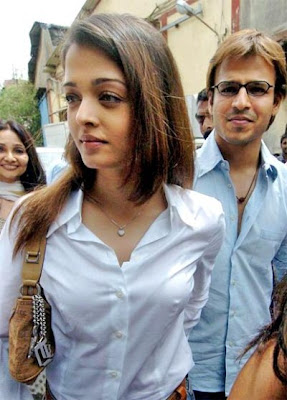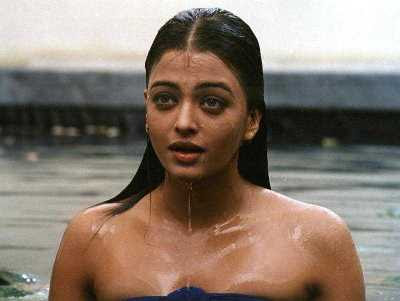
Kumiko Koda (神田 來未子, Kōda Kumiko) (born November 13, 1982), better known by her stage name Kumi Koda (倖田 來未, Kōda Kumi), is a Japanese singer and songwriter from Kyoto, known for her Urban and R&B songs. Having debuted in 2000 with the single "Take Back", Koda gained fame for her seventh single, "Real Emotion/1000 no Kotoba", the songs of which were used as themes for the video game Final Fantasy X-2. Her popularity grew with the release of her fourth studio album Secret (2005), her sixteenth single "Butterfly" (2005), and her first greatest hits album Best: First Things (2005), reaching the number-three, number-two and number-one spot respectively.
Though her early releases presented a conservative, quiet image, since as early as 2003 Koda has adopted a sexier and more provocative style. Because of this image, she has become a fashion leader among young women, setting trends such as the ero-kakkoii style. She has also won many fashion awards such as, the "Best Jeanist Award" and the title of "Nail Queen" three times since 2006. Since the rise in her popularity, Koda has lent her face and songs to many advertisements. In 2006 and 2007, Oricon awarded with Koda the title of best-selling artist.

On January 31, 2008, a day after the release of her sixth studio album, Kingdom, Koda became the center of controversy when she made a comment on Japanese radio show, All Night Nippon.
On March 14, 2007, Koda released her thirty-fifth single ("But/Aishō"), another greatest hits album (Best: Bounce & Lovers), and a DVD of her second tour Live Tour 2006–2007: Second Session. Her second single of 2007, "Freaky", reached the top spot on the Oricon, giving Koda her fourth number-one single. Koda performed at the Japanese leg of Live Earth in Tokyo on July 7, 2007, and attended Ap Bank Fes '07, an conservationist-themed concert, hosted by Kazutoshi Sakurai of Mr. Children on July 15, 2007. At the end of 2007, Koda released two singles, "Ai no Uta" and "Last Angel", a collaboration with Korean boy band TVXQ better known as Tohoshinki in Japan. "Last Angel" was used as the theme song for the Japanese release for Resident Evil: Extinction. On December 1, she held her first performance at Tokyo Dome for her third nationwide and first arena tour. Koda became the seventh solo female singer to perform at Tokyo Dome with an estimated audience of 45,000 people. Having sold more than 7.3 billion yen worth of CDs and DVDs, Koda was again the best-selling artist of the year in Oricon's 2007 year-end rankings.

Koda released her thirty-ninth single "Anytime" on January 23, 2008; it was followed by her sixth studio album Kingdom, which was released in the same format as her previous album. With a little over 420,000 copies sold, Kingdom debuted atop the Oricon. On January 31, Koda hosted All Night Nippon; discussing her manager's recent marriage and plans on having children, Koda remarked that "When women turn 35, their amniotic fluid goes rotten, so I'd like them to have a child by 35". Because of the controversy instigated by the comment, Avex released an apology stating that as a consolation, all promotion of Kingdom would cease. Additionally, several of Koda's commercial endorsements were placed on hiatus. Koda herself made a public apology on Fuji TV. Despite the controversy, Kingdom remained on top for a second consecutive week. Two months after her controversial statement, Koda released Live Tour 2007: Black Cherry Tour Special Final in Tokyo Dome, her fourth live DVD. Her fourth nationwide tour Koda Kumi Live Tour 2008: Kingdom commenced on April 12, 2008.

Koda's fortieth single "Moon" was released on June 11, 2008. Like "Freaky", "Moon" contained four tracks. The single contained "Moon Crying", used as the theme for Asahi Television drama Puzzle, and a collaboration track with Black Eyed Peas' Fergie Koda again attended Avex's annual summer concert A-Nation '08. She appeared at all eight shows in Japan and performed with other Avex artists such as Every Little Thing, Ai Otsuka, Namie Amuro, Ayumi Hamasaki, TVXQ, and Maki Goto. In October, Koda released her forty-first single, "Taboo". With around 66,000 copies sold in its first week, "Taboo" debuted at the number-one position and became Koda's fifth single to reach the top. Koda released her forty-second single "Stay with Me" on Christmas Eve, which debuted atop of the chart selling 58,000 copies. Koda's seventh studio album, Trick, was another number-one album for the singer, selling 253,000 in its first week. The album stayed at the number-one spot for a second week selling 56,000 copies. Although the album debuted at the number-one position, this was her lowest selling album since her third studio album, Secret.
Koda's forty-third single, "It's All Love!", was released on March 31, 2009. The single is an collaboration with her younger sister, Misono. The second song from the single, "Faraway", was used for the theme song for the manga-based movie Subaru. It's All Love! debuted atop the Oricon and made the sisters the first siblings to top the chart in its initial week. In addition, two albums were released on March 25, Out Works & Collaboration Best and Koda Kumi Driving Hit's [sic]. The former is a compilation of the tracks that are collaborations with other artists and the latter is a remix album. Out Works & Collaboration Best and Koda Kumi Driving Hit's debuted at #7 and #6 respectively. On July 8, 2009, Koda released her forty-fourth single, "3 Splash".

Since the start of her career Koda has been writing the lyrics to her songs. On her second studio album, Grow into One, Koda wasn't as much involved with the writing of the lyrics, as only four songs were written by her. Koda's control over the writing of the lyrics grew with her thirty-third single "Yume no Uta/Futari de... ". The single was originally intended to be a single song about "happy love", however Koda felt the melody had represented both the elements of happiness and sadness. She wrote the lyrics for both songs to represent the sadness and the happiness. In doing so Koda ended up creating two songs with the same melody. She remarked, "It was a first time experiment for me, but I was able to convey how happiness and sadness are two sides of the same coin." Koda lists Janet Jackson, Christina Aguilera, and Beyoncé Knowles as her inspirations; she has also stated that when she produces, she "is like a different person"; thus, she refers to herself in the third person and "looks at [herself] objectively".
Koda was not as involved concerning the composition of her songs. "Milk Tea" (ミルクティー, Miruku Tii), from Black Cherry, marked the first time she composed a song. Her involvement in the composition stage grew during the production of her seventh studio album Trick.
QKKQ9R7J3BXR













 Rai was born in Mangalore to Krishnaraj Rai and Vrinda Rai. Her family belongs to the Bunt community of Mangalore. She has one elder brother, Aditya Rai who works in Navy and has also co-produced one of Rai's movies, Dil Ka Rishta (2003). At an early age her parents moved to Mumbai where she attended the Arya Vidya Mandir high school in Santa Cruz. Rai then entered Jai Hind College at Churchgate for one year, and then moved to Ruparel College in Matunga to finish her "HSC" studies. She did well in school and planned to become an architect and went on pursuing studies in architecture. She can communicate in several languages, including her mother tongue Tulu, as well as Hindi, English, Marathi and Tamil. She started studying architecture but gave up her education to pursue a career in modelling.
Rai was born in Mangalore to Krishnaraj Rai and Vrinda Rai. Her family belongs to the Bunt community of Mangalore. She has one elder brother, Aditya Rai who works in Navy and has also co-produced one of Rai's movies, Dil Ka Rishta (2003). At an early age her parents moved to Mumbai where she attended the Arya Vidya Mandir high school in Santa Cruz. Rai then entered Jai Hind College at Churchgate for one year, and then moved to Ruparel College in Matunga to finish her "HSC" studies. She did well in school and planned to become an architect and went on pursuing studies in architecture. She can communicate in several languages, including her mother tongue Tulu, as well as Hindi, English, Marathi and Tamil. She started studying architecture but gave up her education to pursue a career in modelling. Rai made her acting debut in Mani Ratnam's Tamil film, Iruvar (1997) with Mohanlal, The film was a commercial and critical success and won many awards including Best Film award at the Belgrade International Film Festival, two National Film Awards, and two Filmfare Awards South. Rai made her Bollywood debut in the film, Aur Pyaar Ho Gaya opposite Bobby Deol, which also released that year; the film did not do well at the box office. and was also panned by critics. However, her third project, S. Shankar's Tamil film, Jeans (1998) was a critical and commercial success, earning her the Filmfare Best Actress Award South. The film, which portrayed Rai in a dual role, took Rai two years to complete.
Rai made her acting debut in Mani Ratnam's Tamil film, Iruvar (1997) with Mohanlal, The film was a commercial and critical success and won many awards including Best Film award at the Belgrade International Film Festival, two National Film Awards, and two Filmfare Awards South. Rai made her Bollywood debut in the film, Aur Pyaar Ho Gaya opposite Bobby Deol, which also released that year; the film did not do well at the box office. and was also panned by critics. However, her third project, S. Shankar's Tamil film, Jeans (1998) was a critical and commercial success, earning her the Filmfare Best Actress Award South. The film, which portrayed Rai in a dual role, took Rai two years to complete. In 1999 Rai starred in Sanjay Leela Bhansali's Hum Dil De Chuke Sanam opposite Salman Khan and Ajay Devgan, the film was centered around a Love triangle and won critical acclaim and was her first Bollywood box office success. She won her first Filmfare Best Actress Award for the film. In the same year she appeared in Subhash Ghai's Taal , in which she played the role of a young village girl Mansi, who becomes a big Pop star after being hurt by her lover played by Akshay Khanna, the film was an average performer in India but was a big success among the international audience, especially in the United States, where it became the first Indian film to reach the top 20 on Variety's box office list. the film gave her another nomination for Best Actress at the Filmfare; her performances in the films was applauded by critics and earned her critical acclaim .
In 1999 Rai starred in Sanjay Leela Bhansali's Hum Dil De Chuke Sanam opposite Salman Khan and Ajay Devgan, the film was centered around a Love triangle and won critical acclaim and was her first Bollywood box office success. She won her first Filmfare Best Actress Award for the film. In the same year she appeared in Subhash Ghai's Taal , in which she played the role of a young village girl Mansi, who becomes a big Pop star after being hurt by her lover played by Akshay Khanna, the film was an average performer in India but was a big success among the international audience, especially in the United States, where it became the first Indian film to reach the top 20 on Variety's box office list. the film gave her another nomination for Best Actress at the Filmfare; her performances in the films was applauded by critics and earned her critical acclaim . In 2000, she appeared in Mansoor Khan's Josh alongside Shahrukh Khan and Chandrachur Singh, in which she played a Catholic girl named Shirley who falls in love with the sibling of her Brother's enemy. The film was a commercial success. Later that year she appeared in Satish Kaushik's Hamara Dil Aapke Paas Hai opposite Anil Kapoor. It was a moderate success and her performance earned her a Filmfare Best Actress Award nomination. Later that year she played a supporting role in the Aditya Chopra's Mohabbatein alongside Amitabh Bachchan and Shahrukh Khan, the film was a major commercial success and became the second highest grosser of the year, it also earned her a Filmfare Best Supporting Actress Award nomination. Later that year, she also starred in the Tamil film Kandukondain Kandukondain, alongside Mammooty, Ajith Kumar and Tabu.
In 2000, she appeared in Mansoor Khan's Josh alongside Shahrukh Khan and Chandrachur Singh, in which she played a Catholic girl named Shirley who falls in love with the sibling of her Brother's enemy. The film was a commercial success. Later that year she appeared in Satish Kaushik's Hamara Dil Aapke Paas Hai opposite Anil Kapoor. It was a moderate success and her performance earned her a Filmfare Best Actress Award nomination. Later that year she played a supporting role in the Aditya Chopra's Mohabbatein alongside Amitabh Bachchan and Shahrukh Khan, the film was a major commercial success and became the second highest grosser of the year, it also earned her a Filmfare Best Supporting Actress Award nomination. Later that year, she also starred in the Tamil film Kandukondain Kandukondain, alongside Mammooty, Ajith Kumar and Tabu. In 2002, Rai appeared alongside Shahrukh Khan and Madhuri Dixit in Sanjay Leela Bhansali's Devdas, an adaptation of Sharat Chandra Chattopadhyay famous novel by the same name. She played the role of Paro (Parvati), the love interest of the protaganist played by Khan. The film received a special screening at the Cannes Film Festival. and became the highest grossing film of the year both in India and overseas. Devdas won numerous awards including 10 Filmfare Awards, and Rai received her second Filmfare Best Actress Award for her performance. In 2003, she acted in Rituparno Ghosh's Bengali film, Chokher Bali, an adaptation of one of Rabindranath Tagore's novels by the same name. She portrayed the character of a young woman called Binodini, who is left to her own devices when her sickly husband dies soon after they are married. That year she also appeared in her home production Dil Ka Rishta alongside Arjun Rampal and Rohan Sippy's Kuch Na Kaho alongside Abhishek Bachchan, none of which succeeded.
In 2002, Rai appeared alongside Shahrukh Khan and Madhuri Dixit in Sanjay Leela Bhansali's Devdas, an adaptation of Sharat Chandra Chattopadhyay famous novel by the same name. She played the role of Paro (Parvati), the love interest of the protaganist played by Khan. The film received a special screening at the Cannes Film Festival. and became the highest grossing film of the year both in India and overseas. Devdas won numerous awards including 10 Filmfare Awards, and Rai received her second Filmfare Best Actress Award for her performance. In 2003, she acted in Rituparno Ghosh's Bengali film, Chokher Bali, an adaptation of one of Rabindranath Tagore's novels by the same name. She portrayed the character of a young woman called Binodini, who is left to her own devices when her sickly husband dies soon after they are married. That year she also appeared in her home production Dil Ka Rishta alongside Arjun Rampal and Rohan Sippy's Kuch Na Kaho alongside Abhishek Bachchan, none of which succeeded. In 2004 she appeared in Gurinder Chadha's Bollywood-style English adaptation of Pride and Prejudice by Jane Austen, Bride and Prejudice alongside Martin Henderson. In the film she potrayed the role of Lalita Bakshi, the film's counterpart of Elizabeth Bennet in Austen's novel. This was followed by Rajkumar Santoshi's Khakee alongside Amitabh Bachchan, Akshay Kumar, Ajay Devgan and Jayapradha, in the film she played a negative role for the first time in her career. In the same year she appeared in in her second film with Rituparno Ghosh, Raincoat alongside Ajay Devgan. The film was highly acclaimed by the critics, whereas Rai received rave reviews for her performance.
In 2004 she appeared in Gurinder Chadha's Bollywood-style English adaptation of Pride and Prejudice by Jane Austen, Bride and Prejudice alongside Martin Henderson. In the film she potrayed the role of Lalita Bakshi, the film's counterpart of Elizabeth Bennet in Austen's novel. This was followed by Rajkumar Santoshi's Khakee alongside Amitabh Bachchan, Akshay Kumar, Ajay Devgan and Jayapradha, in the film she played a negative role for the first time in her career. In the same year she appeared in in her second film with Rituparno Ghosh, Raincoat alongside Ajay Devgan. The film was highly acclaimed by the critics, whereas Rai received rave reviews for her performance. In the year 2006, Rai starred in J P Dutta's Umrao Jaan an adaptation of the Urdu novel Umrao Jaan Ada (1905), written by Mirza Hadi Ruswa. She potrayed the role of a real life courtesan and poetess by the same name from 19th century. The film was a critical and commercial failure, though Rai's work was generally well received. Critic Taran Adarsh wrote, "Aishwarya Rai looks ethereal. She has looked heavenly and performed so convincingly. She emotes through her expressive eyes and the consistency in her performance is evident from start to end". Later that year she appeared as a master thief, Sunheri, in Yash Raj Films's Dhoom 2 directed by Sanjay Gadhvi, with an ensemble cast of Hrithik Roshan, Abhishek Bachchan, Bipasha Basu and Uday Chopra. The film turned out to be a blockbuster and became the highest grossing film of the year in India. The film also sparked a controversy for a scene containing a kiss between her and Hrithik Roshan. Her performance earned her a sixth nomination for Filmfare Best Actress Award.
In the year 2006, Rai starred in J P Dutta's Umrao Jaan an adaptation of the Urdu novel Umrao Jaan Ada (1905), written by Mirza Hadi Ruswa. She potrayed the role of a real life courtesan and poetess by the same name from 19th century. The film was a critical and commercial failure, though Rai's work was generally well received. Critic Taran Adarsh wrote, "Aishwarya Rai looks ethereal. She has looked heavenly and performed so convincingly. She emotes through her expressive eyes and the consistency in her performance is evident from start to end". Later that year she appeared as a master thief, Sunheri, in Yash Raj Films's Dhoom 2 directed by Sanjay Gadhvi, with an ensemble cast of Hrithik Roshan, Abhishek Bachchan, Bipasha Basu and Uday Chopra. The film turned out to be a blockbuster and became the highest grossing film of the year in India. The film also sparked a controversy for a scene containing a kiss between her and Hrithik Roshan. Her performance earned her a sixth nomination for Filmfare Best Actress Award. In 2007 she appeared in Mani Ratnam's Guru as Sujata, speculated to be based on the life of Indian businessman Dhirubhai Ambani, it was a rag to riches story about an ambitious small town man who ends up as the owner of the biggest corporation in India. The film was premièred at the Elgin Theatre in Toronto, Ontario, Canada, making it the first Indian film to have a mainstream international premiere in Canada. The film was critically acclaimed and performed well at the box office, becoming one of the highest grossers of the year. Rai won the critical acclaim, with one critic writing, "Aishwarya Rai stuns you with a powerful performance. Known for her angelic looks all the while, the actor will make people sit up and notice the reservoirs of talent in Guru". Rai got her seventh nomination for the Filmfare Best Actress Award for the film. In the same year she starred in Jag Mundhra's British film Provoked as Kiranjit Ahluwalia(an NRI woman who killed her abusive husband after facing severe domestic violence) alongside Naveen Andrews. The film was panned by critics and was also a commercial failure, though rai received positive reviews from critics. In the same year she appeared as a female Indian warrior from Kerala named Mira, in Doug Lefler's epic film The Last Legion alongside Sir Ben Kingsley, Colin Firth and Thomas Sangster. The film was a critical failure.
In 2007 she appeared in Mani Ratnam's Guru as Sujata, speculated to be based on the life of Indian businessman Dhirubhai Ambani, it was a rag to riches story about an ambitious small town man who ends up as the owner of the biggest corporation in India. The film was premièred at the Elgin Theatre in Toronto, Ontario, Canada, making it the first Indian film to have a mainstream international premiere in Canada. The film was critically acclaimed and performed well at the box office, becoming one of the highest grossers of the year. Rai won the critical acclaim, with one critic writing, "Aishwarya Rai stuns you with a powerful performance. Known for her angelic looks all the while, the actor will make people sit up and notice the reservoirs of talent in Guru". Rai got her seventh nomination for the Filmfare Best Actress Award for the film. In the same year she starred in Jag Mundhra's British film Provoked as Kiranjit Ahluwalia(an NRI woman who killed her abusive husband after facing severe domestic violence) alongside Naveen Andrews. The film was panned by critics and was also a commercial failure, though rai received positive reviews from critics. In the same year she appeared as a female Indian warrior from Kerala named Mira, in Doug Lefler's epic film The Last Legion alongside Sir Ben Kingsley, Colin Firth and Thomas Sangster. The film was a critical failure. In 2008, she starred alongside Hrithik Roshan in Ashutosh Gowariker's historical drama Jodhaa Akbar which was a critical and commercial success playing the role of Jodha Bai, the wife of the Mughal emperor Jalaluddin Muhammad Akbar, played by Roshan; and also co-starred with husband Abhishek Bachchan and her father-in-law Amitabh Bachchan in Sarkar Raj, playing the CEO of a major power company proposing to establish a new power plant in rural Maharashtra.
In 2008, she starred alongside Hrithik Roshan in Ashutosh Gowariker's historical drama Jodhaa Akbar which was a critical and commercial success playing the role of Jodha Bai, the wife of the Mughal emperor Jalaluddin Muhammad Akbar, played by Roshan; and also co-starred with husband Abhishek Bachchan and her father-in-law Amitabh Bachchan in Sarkar Raj, playing the CEO of a major power company proposing to establish a new power plant in rural Maharashtra. In 2009 Rai was awarded the Padma Shri for her contributions to Indian cinema. In the same year she refused to accept the second-highest Order Of France, Ordre des Arts et des Lettres as her father was suffering from serious illness, and she wanted her whole family to attend the award function. She is only the fourth Indian actor after Amitabh Bachchan, Nandita Das and Shahrukh Khan to be chosen for an Order Of France .
In 2009 Rai was awarded the Padma Shri for her contributions to Indian cinema. In the same year she refused to accept the second-highest Order Of France, Ordre des Arts et des Lettres as her father was suffering from serious illness, and she wanted her whole family to attend the award function. She is only the fourth Indian actor after Amitabh Bachchan, Nandita Das and Shahrukh Khan to be chosen for an Order Of France .